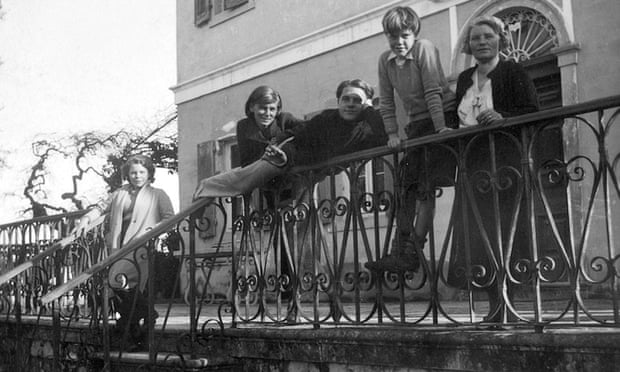Dining with the Durrells: Stories and Recipes from the Cookery Archives of Mrs Louise Durrell,
by David Shimwell, foreword by Lee Durrell, afterword by Jacquie Durrell (Hodder & Stoughton, £16.99)
My Family and other Animals was the late Gerald Durrell’s greatest success, an engaging mixture of an amusing family saga with an account of the growing intimacy of the young Gerald with the natural history of Corfu in the mid-1930s. It was followed by two others in the same style spread over this writing career, the recent television adaption of which was also a great sucess.
These books may seem to have been about zoology, but they were also as importantly about gastronomy, as delivered by Louisa Durrell, the ‘Mother’ of the books and TV series.
Though her late husband was an Anglo-Indian of British origin, Louise was Anglo-Irish by descent. Irish readers may in this book catch a tone and approach to enjoying life that has echoes in the books of the Anglo-Irish here in Ireland.
Cookery tomes
Readers will recall that Mother’s favourite bedside reading (aside from detective stories) were cookery tomes with title like Simples Dishes from Rajasthan.
The author of this very entertaining book draws on Louisa’s archive for several dishes of Indian origin, but also on many other more adapted to what would be called ‘the Media reran diet’; though in her hands it was a richer feast than modern devotees of diet would care for.
“We lolled in the sea until it was time to return for tea, another of Mother’s gastronomic triumphs,” as Gerald records. “Tottering mounds of hot scones; crisp paper-thin biscuits; cakes like snowdrifts, oozing jam; cakes dark, rich and moist, crammed with fruit; brandy snaps brittle as coral and overflowing with honey. Conversation was almost at a standstill; all that could be heard were the gentle tinkle of cups, and the heartfelt sigh of some guest, accepting another slice of cake.”
Strictly speaking this is not a cook book, but a book about the lively time the family had in Corfu, buttressed by simply presented recipes from Louisa’s archive — there is nothing overly foodie here.
The book is simply good fun, with some good food as a reward. The 11 sections of this book each contain four recipes of assorted curries, cakes, desserts and vegetarian dishes (largely for her daughter Margo). I have to confess that all sounds very delicious and my wife and I cannot wait to cook some of them.
Strictly speaking this is not a cook book, but a book about the lively time the family had in Corfu, buttressed by simply presented recipes from Louisa’s archive”
Lawrence Durrell’s novels are not to everyone’s taste it has to be admitted – though he was also the author of a play now almost forgotten An Irish Faustus. But his book Prospero’s Cell (1945) and its companion on Rhodes Reflections on a Marine Venus are (as I found recently) just as good as they were when I first read them back in the 1970s.
Those who have enjoyed summer holidays in the Greek islands, as so many Irish people have, will relish this book as a source of delight to continue their engagement with the source of our civilisation through the winter months.


 Peter Costello
Peter Costello The Durrell family on Corfu in the mid 1930s Photograph: Gerald Durrell Archive, The Guardian
The Durrell family on Corfu in the mid 1930s Photograph: Gerald Durrell Archive, The Guardian 